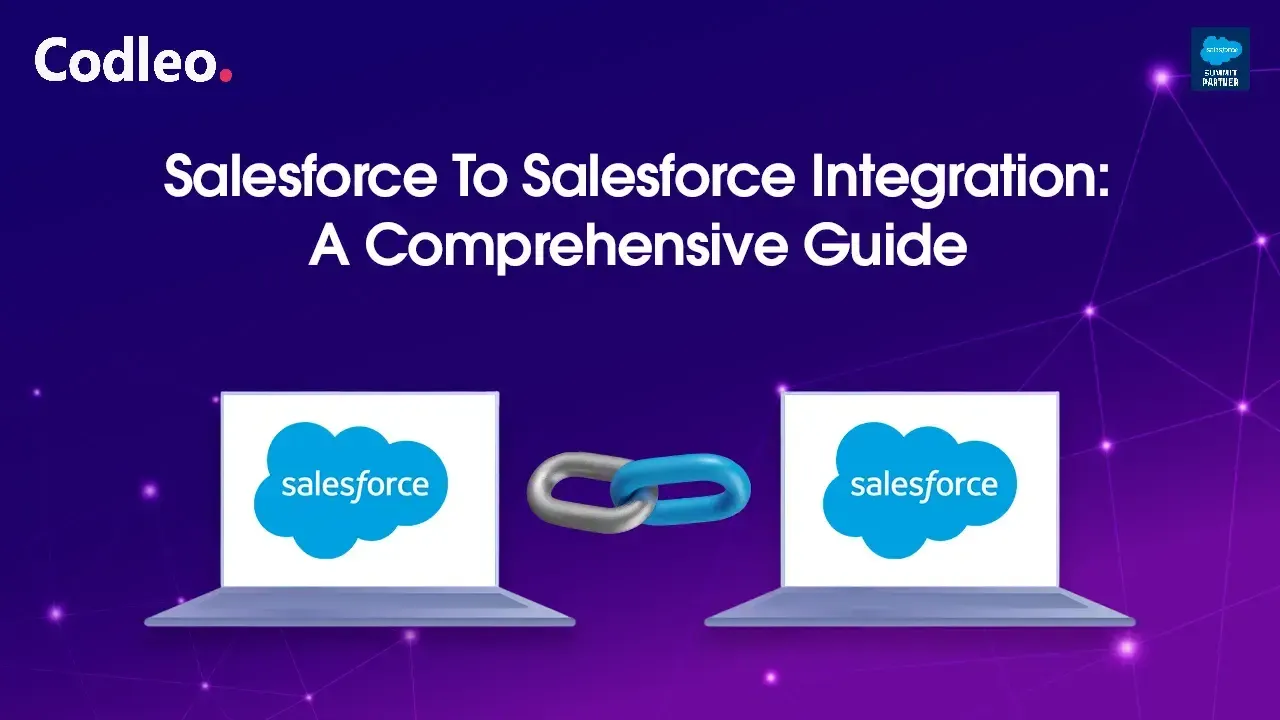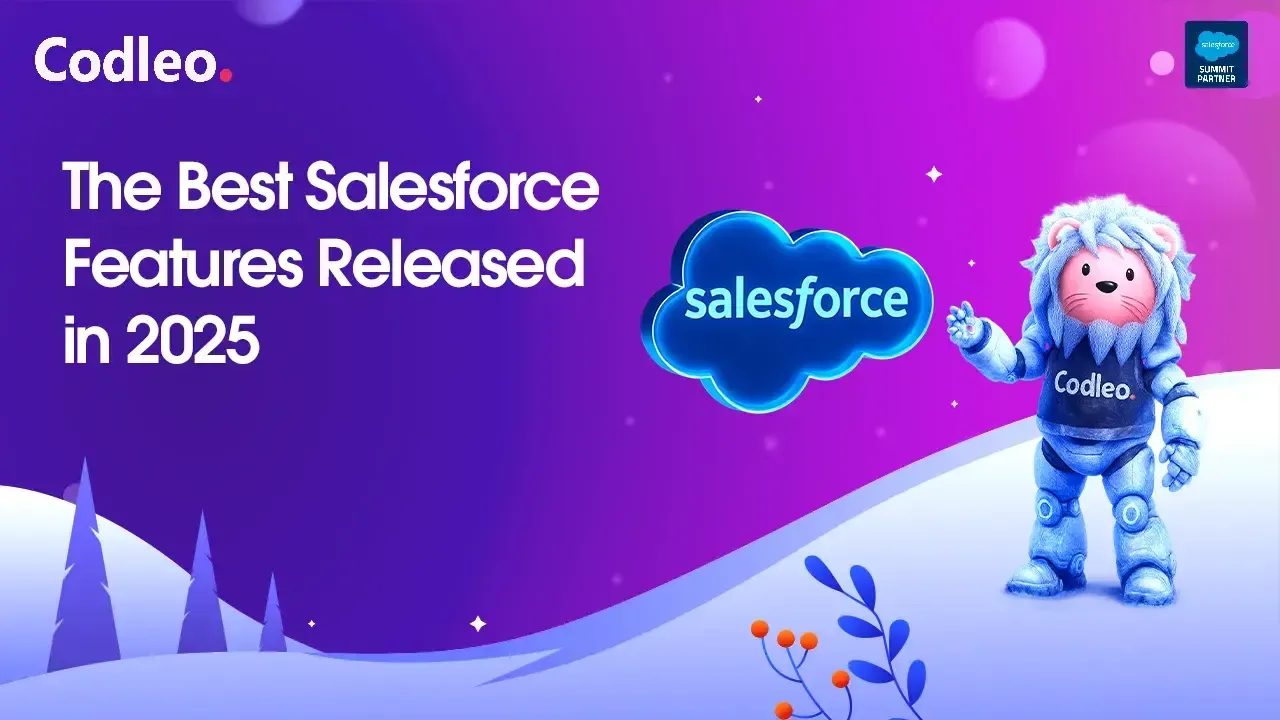Publish date:
Salesforce CRM is among the top Customer Relationship Management solutions worldwide, catering to millions of users. It offers advanced Cloud, Sales, Marketing technologies, analytics, and marketing services. Businesses of all sizes across various industries rely on Salesforce to manage sales, finance, marketing, customer service, and other operations effectively. Salesforce’s Customer Success division highlights the intuitive setup and administration, with user-friendly KPIs to back it up.
While Salesforce is a highly sought-after CRM tool, its implementation can be complex, requiring significant time and resources. It is essential to understand the costs involved before integrating Salesforce into your sales management or CRM strategy. The cost of CRM implementation is a critical factor when evaluating tools for improving sales performance or customer service efficiency.
More than 150,000 companies globally use Salesforce, contributing to new revenues of $1.56 trillion by 2026. Estimating the cost of Salesforce implementation is crucial, with prices typically ranging from $10,000 to $150,000 depending on project complexity. Effective implementation can boost customer revenue by up to 37% and enhance relationships.
In-house rollouts can be more expensive due to potential issues and may not optimize workflows or costs. Outsourcing CRM implementation to Salesforce experts is often a better option. These professionals can accurately estimate licensing and installation fees and select the right edition for your needs. Additionally, CRM consultants provide cost estimates for purchasing, deploying, and adapting solutions while offering ongoing support and advice.
This article outlines the costs and benefits of working with a Salesforce partner company, pricing for core products, and factors affecting these prices. By understanding these key details about Salesforce implementation costs, you can achieve a smooth and efficient rollout.
Know Your Market Before Implementing Salesforce
Salesforce and its ecosystem provide outstanding performance, significantly benefiting local economies and customer organizations.
By 2026, Salesforce's global customer base is expected to be six times larger than today. IDC predicts that Salesforce and its cloud services could reach a customer base worth $724 billion, up from $308 billion currently.
Future Market Insights forecasts that by 2029, the global Salesforce market will grow at a compound annual rate of 14.4%, reaching $33.5 billion. According to reports from average Salesforce customers, 58% of project payback was realized within one year. Various factors can influence the cost of Salesforce implementation.
Factors Affecting Salesforce Implementation Cost
Several variables can impact the cost of Salesforce implementation. The pricing can vary significantly based on various factors and considerations.
Project Scope and Complexity
The cost of Salesforce implementation primarily depends on the project's scope and complexity. Simple implementations with minimal customization and basic features will be less costly compared to complex projects involving extensive customization, data migration, and integration with external systems. Costs increase as your requirements and business processes become more intricate.
Customization Requirements
Salesforce's flexibility allows for extensive customization to meet your business needs. However, creating custom fields, objects, or automated processes can raise implementation costs. Expect higher expenses for more tailored solutions.
Data Migration
Migrating data into Salesforce can increase costs, involving data cleaning, mapping, and transformation to ensure data integrity in the new system.
System Integration
Integrating Salesforce with other systems like ERP, marketing automation, or accounting software can be both costly and complex. The complexity of your integration needs will influence the overall cost.
Change Management and User Training
Successful Salesforce implementation involves more than just technical setup. User adoption, change management, and training are crucial. Training programs to help employees get comfortable with the new system should be factored into the costs.
Subscriptions and Licenses
Salesforce uses a subscription-based pricing model. Costs depend on the licenses and editions you need, with different user types (sales, marketing, and service) requiring various licenses.
Third-Party Applications and Add-Ons
Your implementation strategy might require integrating third-party apps or add-ons to enhance functionality. These additional costs should be included in your budget.
Consulting and Professional Services
Many organizations hire Salesforce consultants to assist with implementation. Costs for these consultants and internal resources vary based on their experience and the level of support needed.
Support and Maintenance
Salesforce Ongoing support and maintenance are essential, including updates, upgrades, bug fixes, and other enhancements for your Salesforce system.
Geographical Considerations
The cost of Salesforce implementation can vary based on geographical location, with labor and consulting fees differing between regions.
Project Management and Timeline
The project's duration can affect costs. Rushed projects or those with unexpected delays may incur additional charges.
Compliance and Regulatory Requirements
Operating in a highly regulated industry may require additional compliance features and security measures, increasing implementation costs.
Costs of Salesforce Implementation Services
When implementing Salesforce services, several critical cost breakdowns must be considered:
Salesforce Consultancy Partner
Salesforce partners are essential in helping you choose the best platform for your business, migrating your data from your current CRM, training your staff, and maximizing your Salesforce investment. They also provide after-launch support, including integrations and custom apps. You can opt for full-service Salesforce agencies or smaller consultants, depending on your needs and budget.
Data Migration
The data migration process is a crucial part of Salesforce implementation. It involves several steps, including:
-
Verifying data accuracy
-
Cleansing errors
-
Mapping data to the Salesforce organization
Additionally, it may include designing solutions to automate data transfer schedules. The complexity and specific requirements of your business will determine the scope of these activities.
Integration of Third Parties
If your company needs to integrate Salesforce with third-party solutions, it is essential to plan for this investment. Successful integration ensures that all systems work seamlessly together, enhancing overall efficiency and functionality.
User Training
User training is vital for the successful adoption and implementation of Salesforce. Well-trained users can fully leverage the CRM's capabilities. The best training often comes from experienced Salesforce companies that specialize in providing CRM services. The training cost will vary based on the number of users and the training level required.
Post-Launch Support
Ongoing support is necessary following Salesforce deployment and initial training. Typically, continued support is needed for a few months after implementation to address any issues and ensure smooth operation. CRM support involves a combination of hourly rates and the duration of support required, ensuring that your system remains effective and efficient.
The Three Fundamental Pricing Models Used by Salesforce Consultants
Hiring experts and SFDC consultants from Salesforce Consulting Partners can be highly beneficial if your implementation needs are extensive. They provide strategic recommendations and comprehensive implementation services. Choosing Salesforce consultants that fit your requirements and budget can help optimize costs throughout the implementation process.
Fixed-Cost
A fixed-cost contract is a common choice when hiring a Salesforce consulting partner. It usually includes a detailed discovery phase followed by a Statement of Work (SOW) that outlines the deliverables, timeline, total costs, and any changes during development that might incur extra charges.
Monthly Retainers
Monthly retainer contracts are ideal for ongoing support or assistance, such as Salesforce Administrator maintenance and support services. Salesforce consulting partners or contractors typically charge a set monthly fee that covers an agreed-upon number of billable hours each month. If you use all available billable hours, you pay the total monthly fee even if some hours go unused. Any hours exceeding the billable time are charged per hour, so it’s wise to negotiate discounts with your contractors or partners at this stage.
Hourly Rate (Time and Materials)
Salesforce contractors and freelancers often work on an hourly basis. You pay them according to their hourly rate and the number of hours worked. This model offers flexibility, allowing you to pause or restart a project as needed.
Ways to Reduce Salesforce Implementation Costs
Salesforce can be a significant investment, and without a proper strategy, it may become even more expensive for your organization. Here are some ways to reduce Salesforce implementation costs effectively:
Create a Detailed Plan
Start by creating a plan that identifies which Salesforce solutions best meet your needs. Determine the most efficient way to deploy and launch these solutions quickly.
Consult an Implementation Partner
After purchasing Salesforce licenses, consult with an implementation partner to ensure your chosen solution addresses your problems adequately. SFDC partners can help integrate Salesforce into your business, train your staff, manage data migration, and provide ongoing education services.
Set a Flexible Budget
While your budget should be adaptable, having a basic outline helps prevent unnecessary spending and focuses on features that offer high returns on investment (ROI). Base your budget on factors like license purchases, the Salesforce plan you invest in, and estimates for training and implementation services.
Guided Adoption for Quick Onboarding
Your sales team may currently use another system to manage operations. It's essential to help them learn to utilize Salesforce and all its features effectively. Salesforce can potentially increase your company's revenue significantly while reducing IT expenses.
To reduce the learning curve, devise a CRM adoption strategy that quickly familiarizes your sales team with Salesforce's services. Guided adoption can onboard sales reps quickly, helping them leverage Salesforce’s features sooner.
Timeframe for Salesforce Implementation
The timeframe for implementing Salesforce can range from a single day to several weeks, depending on the complexity and scale of your project. Complex data migration projects, in particular, may take longer. Here are some key considerations to keep in mind during the implementation process:
Be Patient
While instant results are desirable, technology often requires time to adapt. Regular communication among team members helps keep everyone informed and reduces frustration.
Make Room for Delays
Expect and plan for delays. It's wise to anticipate unforeseen issues, like IT downtime. Allocating extra time can help you manage these unexpected events.
Understand Restrictions
Ensure your implementation team is free to complete tasks efficiently while prioritizing quality. This approach helps save time in the long run by avoiding the need to fix rushed work.
Ask Questions
Don't hesitate to ask questions or voice concerns. Open-ended, probing questions can provide greater clarity and insight. Always seek clarification if something is unclear and provide feedback promptly.
Avoid Rushing
Take the time to thoroughly test new systems before they go live. Plan test sessions to identify and address bugs, performance issues, and other potential problems before implementation.
Read Documents Carefully
Review contracts or legal policies carefully to identify any vague language or potential issues, especially regarding intellectual property ownership. Clear and precise wording is essential.
Communication, Preparation, and Foresight
Effective communication, thorough preparation, and foresight can make Salesforce implementations smoother. When your new system launches and delivers results, the effort invested will be worthwhile.
Conclusion
Overall, using Salesforce as a Customer Relationship Management system offers significant benefits beyond its costs. Salesforce CRM is customizable, flexible, and robust. Reach out to certified Salesforce consultants to discover what Salesforce can bring to your business.
Implementation costs depend on various factors, including technology, support, and resources. Estimating individual customer costs can be challenging due to considerations like business size, the number of employees, data migration needs, and the level of customization required. All these components play a crucial role in your investment.
Salesforce's return on investment (ROI) can exceed 65% within the first year, with implementation costs recouped by the second year and ROI increasing further. According to IDC, the economic impact over four years shows an average ROI of 300-500%, with a 43% reduction in IT costs and a 26% decrease in emails.
When planning and implementing Salesforce, it is essential to work with expert consultants. They can help you navigate the complexities and maximize the benefits of your Salesforce investment.
By considering the estimates and factors mentioned, you can better understand the overall implementation process. Actual expenses will depend on your business goals and the specific challenges you need to address.
Connect with Salesforce implementation experts today for more details and an expert strategy call to discover ways to implement Salesforce effectively while managing costs efficiently.















